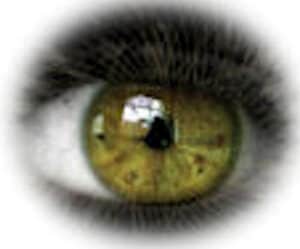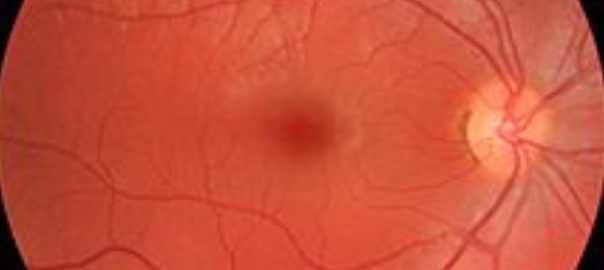Studies have shown that intervention with lifestyle changes which includes: adequate nutrition with supplementation, exercise and weight loss, and reducing environmental stresses like UV exposure and smoking can halt the progression and prevent further vision loss from age-related eye diseases.
How do you keep your eyesight from deteriorating with age?
There are 4 major risk factors for developing eye disease which can result in vision loss:
- a nutritionally poor diet,
- lack of exercise,
- smoking, and
- UV and high energy blue light exposure.
We are living longer than our ancestors did less than one hundred years ago. Diseases associated with old age in the past were rare, like cognitive impairments, cardiovascular disease, and some types of cancer, but are now more common in an aging population. It can also be said that macular degeneration is on the rise because of the increase number of those living to be older, the Western diet, and environmental stresses.
What can be done to decrease the risk for age-related eye diseases?

Food be thy medicine and medicine be thy food.” Hippocrates
Healthy body, healthy eyes. The greatest problem we have as a western society is our lack of fresh and unprocessed foods. Life is easier with foods processed and prepared by commercial food producers. The problem is that nutrition is often processed out of the food, or replaced by tasty, fatty, and are high carbohydrates that are low in nutritional value.
The end result is obesity accompanied with diabetes, cardiovascular disease, and metabolic syndrome. All systems of the body are susceptible to the degenerative effects of poor nutrition, including the eyes. It is these systemic conditions that contribute to cataract formation, macular degeneration, diabetic retinopathy, and glaucoma.
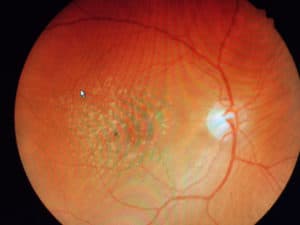
Ideally, our doctors would like to know that their patients are eating healthy and nutritious foods for both ocular and general medical health. What the famous AREDS (age-related eye disease study) studies showed us is that nutrition makes a difference. In the case of this study, the improvements were modest but improvements nonetheless. The importance of this study, and others like it, indicate that specific nutrients do make a difference in our overall health.
Eating healthful foods, with adequate
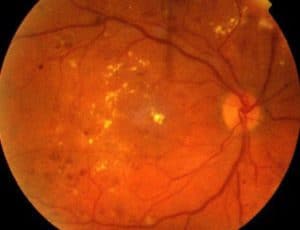
nutritional proportions, is not always easy It is the rare individual who spends time evaluating the quality and nutritional benefits of the foods they eat each day. What we eat is limited by time of year, geography, preferences, and availability. That is where supplements come in. Not everyone eats fish (for omega 3s) or likes leafy green vegetables. What you need to do is to look at what may be missing in your diet. Talk to a dietitian or a naturopath.
The AREDS 2 study supplement included:
- Vitamin C
- Vitamin E
- zinc
- copper
- lutein
- zeaxanthin
Recent and ongoing research has identified other nutrients beneficial to ocular health.
- other carotenoids, like Astaxanthin,
- flavonoids, like the berry anthocyanin extracts,
- resveratrol which is a polyphenol, and
- saffron extract.
See these other articles for more details on the impact other nutrients can have on ocular health:
How do AREDS and AREDS2 Differ?
Do Omega-3 Supplements Help Your Eyes?
Astaxanthin and Vision Benefits
Eye Vitamins; The Anthocyanins of Bilberry, Blueberry, Maqui berry, and Black currant
How adequate nutrition with supplementation serves us 3 ways:
- Optimize your vision and physical health,
- disease prevention, and
- reduce progression of macular disease.
Lifestyle Changes
The concept of movement as exercise is nothing new. Many athletic types have made lots of money showing us how to exercise. TV doctors and talk show hosts all expound on the benefits of exercise. It does make a difference both for eye health and general health. Many health problems such as high blood pressure, diabetes, and high cholesterol are linked to eye disease. What is good for the body is good for the eyes.
How Exercise Effects Eye Health
Exercise increases blood flow, resulting in more blood perfusion to the eye. This can help reduce the risk for glaucoma and increase oxygen and nutrients to a macula which may be degenerating. Those suffering from diabetes are encouraged to exercise to control blood sugar, which in turn helps to reduce the risk for diabetic retinopathy.
Stop Smoking!
Here we go…another reason to stop smoking. Quitting smoking reduces your risk for some eye diseases. This is the easiest risk factor to control. Those who smoke are more likely to develop cataracts at an earlier age. Studies (Clinical Sciences) have shown that those who quit smoking decrease the risk of developing cataracts that will require surgical removal.
The inhaled cigarette smoke is known to contain numerous toxic compounds, some are known to cause cancer. These toxins cause oxidative damage, blood vessel changes and inflammation.(see Journal of Ophthalmology) It is known that smoking effects blood vessel function, and anything that effects blood flow will impact the very tiny blood vessels that feed the very sensitive macula. Smoking increases the risk of macular degeneration.
UV Protection
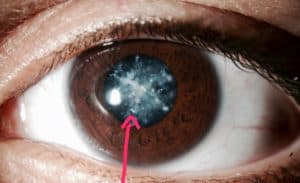
We apply sun screen lotions with SPF (sun protection factors) to prevent sunburns to the skin. Think of sunglasses as SPF for the eyes. Good quality sun-glass lenses will protect against 100% of the tissue damaging ultra violet rays. Bigger lenses are better, not only to protect the lens and retina of the eye, but also protects the delicate tissues around the eyes.
How UV Light and High Energy Blue Light Affects Eyes
Studies have shown that chronic, long-term UV light exposure can cause early

onset of cataracts and macular degeneration later in life. Exposure of the conjunctiva (whites of the eyes)and eyelids can result in growths and worst yet…cancers.

The Blue Light Hazard
Both young and old who use technology chronically for long periods of time, as many of us do, need to be aware of the potential for eye damage due to exposure to blue light. This is not the ultra violet invisible ‘light’, it is the high energy visible blue light. Eye doctors are concerned that excessive exposure over an extensive period of time to high energy blue light will cause retinal degeneration.
Consider reducing time spent on digital devices. For those who need to , there are computer screen filters which can be purchased to reduce blue light. Eye glass lenses are made, which filter out specific wavelengths of blue light, thought to be the most damaging. You would need to ask your eye doctor or optician for these specialty lenses.
Finally, there is an app for that! Type in to your browser or app store:. blue light filter for…Apple, Windows, Android, Mac, Chrome, etc. As a bonus, blue light filters can also help with computer eyestrain and difficulty getting to sleep after an extensive period of computer viewing in the evening.
It is not known yet how the eyes of the younger generation will fair after decades of chronic blue light exposure emitted from technology. Medical professionals question their risk for retinal damage and macular degeneration.
In the end…
Both eyes and body benefit from a nutritionally healthful diet, exercise, and protection from environmental assault. Scientific studies have proven that nutrition and lifestyle factors can promote health and decreases the risk for developing age related eye diseases that have the potential for vision loss and decreasing the quality of life for the aging population.
You only have one set of eyes, take care of them.
